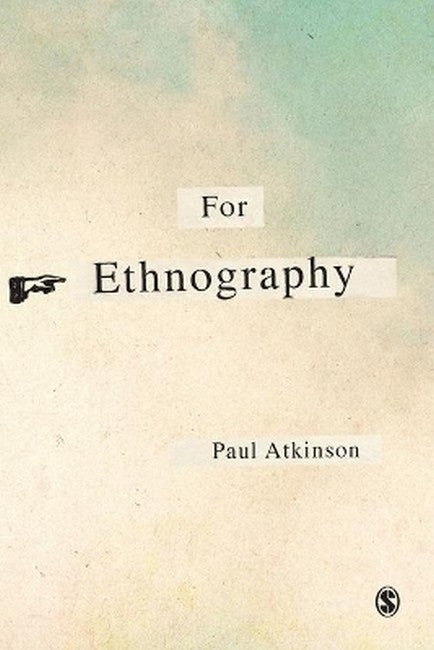Paul Atkinson is Emeritus Professor of Sociology at Cardiff University. Recent publications include For Ethnography (SAGE 2014) and Thinking Ethnographically (SAGE 2017). The fourth book in his quartet will be Crafting Ethnography, also for SAGE. The fourth edition of Hammersley and Atkinson Ethnography: Principles in Practice was published by Routledge in 2019. He is a Fellow of the Academy of Social Sciences and of the Learned Society of Wales.
Request Academic Copy
Please copy the ISBN for submitting review copy form
Description
Introduction The Perspectives of Ethnography Fieldwork Commitments Analytic Perspectives Interaction and the Ceremonial Order Accounts and Narratives Aesthetics, Artefacts and Techniques Structuring Forms Representations The Ethics of Ethnography Conclusion
This text is something of a masterclass in its own right. Few are as well placed to comment on the debates surrounding ethnography - debates which the author had been instrumental in shaping - and to offer a clear and authoritative call-to-arms to future, aspirant ethnographers. It is a passionate but realistic manifesto for those wishing to undertake the craft of ethnography and to do it well. All who read it will benefit. -- Sam Hillyard Sociologist Atkinson (Cardiff Univ., UK) has written what should become a classic in the field of ethnography. For those who feel that ethnographies written over the last 20 years lack the liveliness of the great community studies of the 20th century, this book contains answers. Atkinson offers a corrective to what has become a methodological fetishism in the field, focusing more on technique than the art of understanding human communities as lived. In the spirit of C. Wright Mills's charge to "take it big" instead of getting bogged down in the small debates of intellectual status groups, Atkinson advises readers to preserve the strength of the humanistic ethnographic tradition. He admonishes grounded theory for creating a fixation on coding and thereby disaggregating research instead of coming to know it in a more complicated way. Anthropologists should not think of themselves as the chief proprietors of ethnographic research. In a pithy chapter on ethics, Atkinson elegantly explores how ethnography is in itself a deeply ethical practice with its own built-in means of regulation, and is often traduced by review committees whose concerns are chiefly legal, not ethical or moral, and whose tradition comes out of the medical sciences, which have no affinity with the ethically attuned approach of ethnographic research. -- C. J. Churchill, St. Thomas Aquinas College Atkinson's book provides both an opportunity to reflect on how to conduct high quality and detailed ethnographic research into the vagaries of work and organisational life and also a means of sharpening our thinking about the surroundings we occupy, participate in and study. For Ethnography is a must-read book for those interested in ethnographic research and a valuable chance to reflect on research practice more generally for active researchers. -- Robert Wapshott

